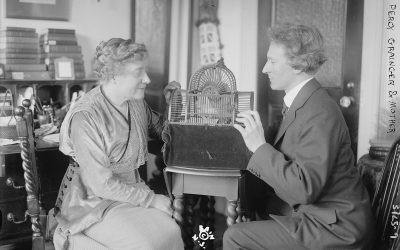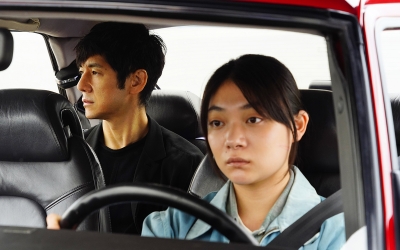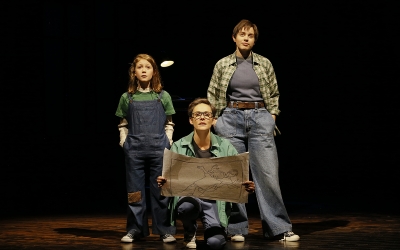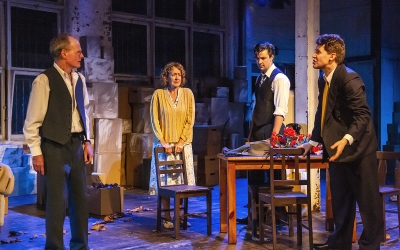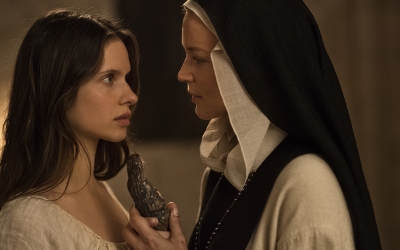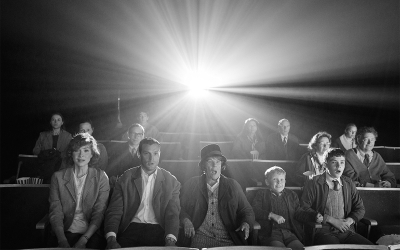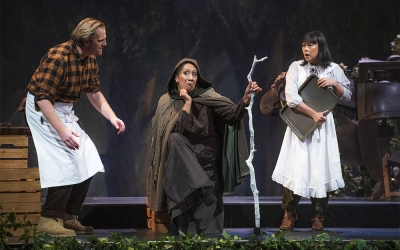Arts
Film | Theatre | Art | Opera | Music | Television | Festivals
Welcome to ABR Arts, home to some of Australia's best arts journalism. We review film, theatre, opera, music, television, art exhibitions – and more. To read ABR Arts articles in full, subscribe to ABR or take out an ABR Arts subscription. Both packages give full access to our arts reviews the moment they are published online and to our extensive arts archive.
Meanwhile, the ABR Arts e-newsletter, published every second Tuesday, will keep you up-to-date as to our recent arts reviews.
Recent reviews
Australians might be forgiven for thinking that the history of classical music – as an art form with origins in Europe – is something that happens elsewhere, that we are little more than observers (and listeners) of a tradition that is essentially the property of others. Melbourne-born Percy Grainger (1882–1961), however, presents us with an unambiguous claim to being a classical composer of lasting historical significance. And yet his music is also not performed, or celebrated, here with anything like the frequency and enthusiasm that it is overseas.
... (read more)Devotees of Giuseppe Verdi often suggest that the composer’s version of Shakespeare’s Othello is ‘greater’ than the original; a fruitless assertion, but indicative of the esteem in which Verdi’s penultimate opera is held. After Aida (1871), Verdi was enjoying the life of a gentleman farmer. Italian opera of the 1870s and 1880s, however, was facing something of a crisis, threatened by the relentless tide of ‘Wagnerism’, whose theories on opera were embraced by many Italians. Verdi, when asked about his own theory of theatre, drily replied: ‘My theory is that the theatre should be full’.
... (read more)Director Ryusuke Hamaguchi’s latest feature, Drive My Car, ponders fidelity and sorrow, and the universal truth that people are mostly fucked up. It adapts Huraki Murakami’s short story of the same name from his collection Men Without Women (2014), about a widower recounting his deceased wife’s infidelities to his ‘homely’ female driver. Hamaguchi’s film gently teases out the many quirky strands of information glossed over in the master novelist’s short story, most notably the characters’ backstories. The result is a literary work, magnificent in scope, that unfurls over three entrancing hours.
... (read more)Vladimir Nabokov, in his exquisite autobiographical work Speak, Memory (1967), says that ‘the prison of time is spherical and without exits’. It is an idea that animates Jeanine Tesori and Lisa Kron’s musical adaptation of Alison Bechdel’s graphic novel Fun Home (2006), moving as it does in circular motions, enfolding its characters in an endless orbital spin through the years. Perhaps memory itself is like this, forever returning to our consciousness the painful and joyous things we’d thought we’d left behind, like moons in retrograde. It is no accident that the show’s opening number is titled ‘It All Comes Back’.
... (read more)A teenager’s arduous journey from a Taliban-occupied Afghanistan in 1989 to the safe haven of Denmark is given a uniquely painterly treatment in Flee. Far from diminishing the story’s impact, this animated documentary is all the more profound for the insidious way the visuals undermine our defences.
Danish filmmaker Jonas Poher Rasmussen became friends with Amin soon after the Afghan refugee arrived in Denmark as an unaccompanied minor. Despite a friendship that has lasted twenty-five years, Amin had never told Jonas the full story of the harrowing experiences that led to his eventual asylum. He hadn’t told anyone. Through the course of Poher Rasmussen’s film, we find out why.
... (read more)Richard Wagner’s famous pronouncement, ‘Kinder, schafft Neues!’ (‘Children, create something new!’), has often been the inspiration to take daring creative risks, particularly (but not exclusively) with productions of his works. Using The Ring as a starting point, directorial licence has been extended in all sorts of intriguing ways that have, over the years, seen Valkyries roaring around on motorcycles, Rhinemaidens as strutting Victorian doxies, the dragon Fafner at the turret of an army tank, Wotan as a Texan oligarch, Siegfried as a hippie, and Gunther and the Gibichungs as Nazis.
... (read more)Since its première in 1949, Arthur Miller’s Death of a Salesman has managed to cling to cultural relevance with a vice-like grip. In 1975, New York Times critic Walter Goodman saw in its evocation of the American middle class the perfect representation of a nation-wide recession following the Vietnam War. In 1984, the play’s titular salesman, Willy Loman, became the symbol of a dwindling middle class under Ronald Reagan. And in Mike Nichol’s 2012 Broadway revival, Charles Isherwood transformed Loman into the perfect everyman for the Great Recession. That same year, Simon Stone staged an innovative adaptation of Miller’s masterpiece for Sydney’s Belvoir Theatre. It was Stone’s decision to have his actors speak in Australian accents rather than the conventional Brooklyn dialect that seemed to pry the play from its American origins.
... (read more)Catholicism gets a bad rap when it comes to sex these days. The Church fixates on condoms and abortion. It isn’t always big on homosexuality either. Paul Verhoeven’s ‘historically inspired’ film, on one level, explores the hypocrisies that arise from such callow credos: the religious renounce the flesh but flagrantly eroticise spiritual and interpersonal relationships. Carnal obsessions abound on screen. Nuns mortify themselves (quite literally) and male clergy are reassuringly lascivious. The whole film is as revealing of the female figure as you would expect from the director of Basic Instinct (1992) and Showgirls (1995). Indeed, those who buy their ticket for the soupçons of Sapphic frottage are unlikely to be disappointed.
... (read more)On the sunny streets of Belfast in 1969, nine-year-old Buddy (Jude Hill) fights imaginary dragons with a wooden sword and a shield made from the lid of a garbage bin. When his Ma calls him home for tea, he races through the neighbourhood, bright-eyed and carefree. But the afternoon idyll is quickly shattered by a small army of Protestant rioters laying siege to the street, smashing windows and firebombing cars in a targeted attempt to weed out any remaining Catholic residents.
... (read more)Great works of art speak to us regardless of circumstance, even if they have a tendency to take circumstance and fold it into their architecture. Stephen Sondheim’s Into the Woods (1987) is such an expansive work – ranging over ideas of parenting and childhood, moral culpability, risk and renewal, death and community – that it will always feel relevant, a grand canvas of the human condition. And yet, in the midst of a global pandemic that is still shutting theatres and clogging hospitals, this work seems more relevant than ever. We have entered our own woods, and the way out is unclear.
... (read more)
